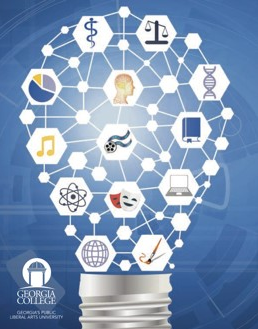Out with the Old, in with the Vague: Re-examining the link between Ideological Identity and Policy Ideals in America
Abstract
In the United States, political ideology is a key aspect of identity. One’s self-identified position on the political spectrum is treated as a character trait from which connections are built, relationships solidified, and policies and candidates selected (Carmines, Ensley, & Wagner 2012). However, the exact meaning of each ideology has changed over time, blurred by incorrect usage and the false association of party lines with ideology (Abramowitz 2010). This has left researchers with a variety of definitions: classical, as defined by Burke and Locke (Honderich 2005, O’Keefe 2013, Turner 2008) and a shifting mainstream understanding (Smith 1996). When assessing what is meant by the terms “liberal” and “conservative,” context is key, and even then it can be difficult to find precision. If researchers are uncertain how exactly to interpret ideologies, the North American public is even more divided. Political literacy is critical to effective political participation, but misinformation and obscurity abound, leading to a mass disconnect between policy ideals and ideology. How, then, have different policies become associated with each ideology? To address this question, I have selected and analyzed data from the General Social Survey, years 1978, 1988, 1998, 2008, and 2018, examining political ideology and opinions on critical policy questions. I examined the movement of policies across respondents’ claimed ideologies, in hopes of determining how policy ideals migrate. Since 1978, the policies have not moved between ideological groups but become more strongly associated with the ideological group that claimed the platform as of 1978. This growing polarization is not only clear and present in the data, but also reveals a clear contradiction to classical definitions of the ideology. The detachment of the terms ‘liberal’ and ‘conservative’ from their true meanings, particularly in the polarized landscape of American politics, can only render the US political discourse less effective.
Out with the Old, in with the Vague: Re-examining the link between Ideological Identity and Policy Ideals in America
In the United States, political ideology is a key aspect of identity. One’s self-identified position on the political spectrum is treated as a character trait from which connections are built, relationships solidified, and policies and candidates selected (Carmines, Ensley, & Wagner 2012). However, the exact meaning of each ideology has changed over time, blurred by incorrect usage and the false association of party lines with ideology (Abramowitz 2010). This has left researchers with a variety of definitions: classical, as defined by Burke and Locke (Honderich 2005, O’Keefe 2013, Turner 2008) and a shifting mainstream understanding (Smith 1996). When assessing what is meant by the terms “liberal” and “conservative,” context is key, and even then it can be difficult to find precision. If researchers are uncertain how exactly to interpret ideologies, the North American public is even more divided. Political literacy is critical to effective political participation, but misinformation and obscurity abound, leading to a mass disconnect between policy ideals and ideology. How, then, have different policies become associated with each ideology? To address this question, I have selected and analyzed data from the General Social Survey, years 1978, 1988, 1998, 2008, and 2018, examining political ideology and opinions on critical policy questions. I examined the movement of policies across respondents’ claimed ideologies, in hopes of determining how policy ideals migrate. Since 1978, the policies have not moved between ideological groups but become more strongly associated with the ideological group that claimed the platform as of 1978. This growing polarization is not only clear and present in the data, but also reveals a clear contradiction to classical definitions of the ideology. The detachment of the terms ‘liberal’ and ‘conservative’ from their true meanings, particularly in the polarized landscape of American politics, can only render the US political discourse less effective.


